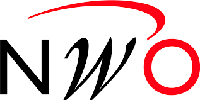
More insight with light
The new programme Synoptic Optics, funded by the NWO Domain Applied and Engineering Sciences, will develop new optical techniques. Researcher Frans Snik and Professor of Experimental Astrophysics Christoph Keller from Leiden Observatory will test novel approaches to monitor air pollution and discover exoplanets; they will receive 1.09 million euros.
New techniques
Optical techniques reveal the size, structure, and composition of an object. However, most optical techniques only look at changes in a few specific properties of the light, such as the intensity or the color. Within the Synoptic Optics programme, led by Paul Urbach of TU Delft, researchers will develop methods to analyse all properties of light simultaneously. These properties are intensity, color, angle, phase, and polarization. Smart algorithms and signal processing techniques ensure that the more extensive measurements are as fast as conventional methods. In addition, the researchers will develop a new optical source to quickly measure all the properties of light simultaneously at thousands of wavelengths.
Leiden contribution
Christoph Keller and Frans Snik are part of the five-year project. Of the 1.09 million they receive, 30% comes from industrial partners. This subsidy allows them to hire two PhD students and one postdoc. In three projects, they will work on three different aspects of measuring light at the interface of astronomy and remote sensing.
Measuring small particles in the air
The first project in Leiden will develop a new approach to measuring small particles in the air by adding filters on top of imaging sensors. ‘This enables us to measure the color and the polarization of light without any additional optics’, says Snik. ‘This will dramatically reduce the size of instruments as well as the amount of data, and enable very small satellites to measure air pollution due to particles.’ The same technology will also be useful to study the Earth as an exoplanet and develop methods to detect life on planets around other stars. The industrial partner for this project is cosine.
Measuring polluting gases
In the second Leiden project, Snik and Keller will develop a novel type of filter with TNO to measure gases such as NO2 with commercial cameras. ‘Based on our patent application, a dramatic simplification and miniaturization will make it possible to build handheld cameras to image air pollution due to gases’, says Keller. ‘In addition, it will enable us to detect methane leaks from gas pipes and build small satellites to measure air pollution due to gases.’
Finding exoplanets with extreme sensitivity
‘The third project here in Leiden is based on an idea by PhD student Sebastiaan Haffert’, says Keller. ‘Together with Airbus, we will develop a programmable instrument to optically combine light with different colors. For instance, the instrument will be able to combine all light that is influenced by CO2, methane, carbon monoxide, or any other gas.’ Instead of having to build separate instruments for each gas, a single instrument will be programmed to do different tasks. ‘This will enable extremely capable instruments to monitor pollution and green-house gases from space and from the ground’, Keller explains. The same technology will enable a novel way to find exoplanets – planets around other stars than our Earth – with up to 1000 times higher sensitivity.
This article is partly based on the Dutch NWO article.

NWO Domain Applied and Engineering Sciences (AES) connects people and resources to develop science-wide technology and technical knowledge that contribute to creating economic added value and solving societal issues. This is realised through the funding of excellent applied and engineering sciences research, by bringing users and researchers together, and by supervising projects towards optimal opportunities for knowledge transfer.
